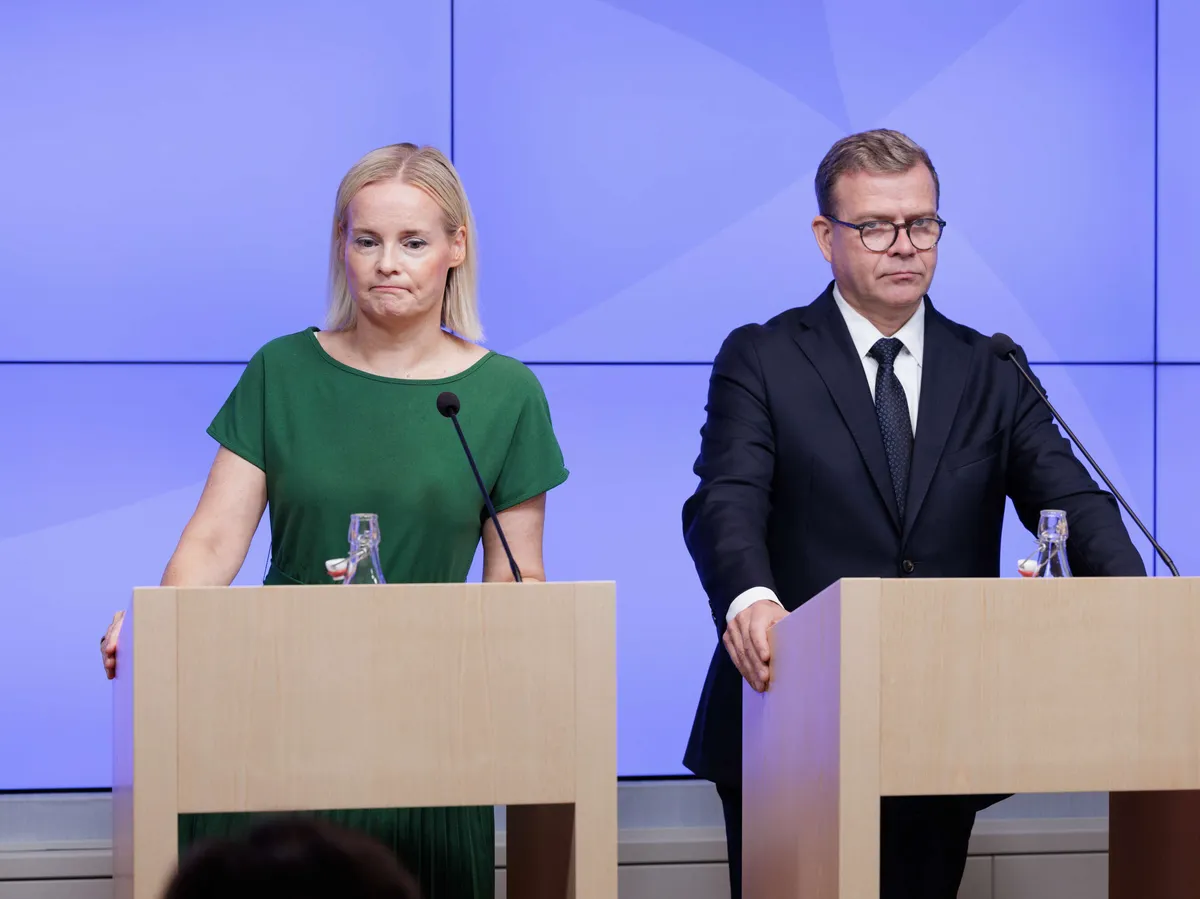The autumn package of the EU semester, announced by the European Commission on Tuesday, assesses the state of the economies of the EU countries.
According to the Commission, the assessment is about how member countries achieve macroeconomic balance and a realistic and manageable debt level.
According to the commission, the new economic control framework focuses on the evaluation of the member countries’ medium-term plans and the countries’ net spending path.
According to the EU’s common economic rules, the annual deficit of the member countries should not exceed three percent of the gross domestic product.
According to the commission, the new control framework will enhance economic coordination and improve the control of economic policy and public finances.
21 reviews
The commission was able to make assessments of the plans of 21 countries. A total of 22 of them were presented.
According to the Commission’s conclusions, the plans of 20 countries meet the requirements of the new economic framework.
The Commission estimates that these countries have “a credible path to ensure that the debt level is on a sustainable downward trajectory”.
The countries that have passed the Commission’s screening are Croatia, Cyprus, the Czech Republic, Denmark, Estonia, Finland, France, Ireland, Greece, Italy, Latvia, Luxembourg, Malta, Poland, Portugal, Romania, Slovakia, Slovenia, Spain and Sweden.
For these countries, the Commission recommends that the Council approve the net spending path included in the medium-term plans.
With regard to the Netherlands, the Commission proposes that the Council recommends net spending for the country, consistent with the information provided by the Commission in June.
Hungary’s medium-term plan is still being evaluated by the Commission.
Finland is among the five countries – together with France, Italy, Spain and Romania – whose net spending career the commission agreed to extend from four to seven years.
The Commission estimates that the reform measures and investment commitments included in the plans of all five countries meet the criteria for an extension.
For observation class
The Commission does not intend to put Finland in the so-called economic “observation category”, i.e. the excessive deficit procedure (EDP), even though Finland’s public finance expenditures exceed revenues by more than three percent this year.
According to the forecast of the Ministry of Finance, the deficit will rise to 3.7 percent this year, but the excess of the deficit is estimated to be exceptional and temporary.
VM predicts that next year the public sector deficit will be 3.2 percent.
Prime minister Petteri Orpon However, the (kok) government is planning a deficit of less than three percent for next year.
According to the Commission’s recent assessment, Finland’s deficit is not expected to exceed the reference value in 2025, even if no new policy measures are taken.
In the recent autumn package, the Commission also presents recommendations on what actions the eight countries currently under observation must take.
According to the Commission, the corrective measures are mainly based on the medium-term plans of the member countries.
The countries under observation are Belgium, France, Hungary, Italy, Malta, Poland, Romania and Slovakia.
According to the commission, Austria may also be threatened with being placed under surveillance, unless the country’s new government presents credible corrective measures for its economy.
Budgets are the reason
The Commission has also assessed the 2025 budget plans (DBP) of the 17 euro countries and whether the countries’ net expenditure growth is in line with the medium-term plans.
According to the Commission’s assessment, eight euro area member states follow the fiscal policy recommendations of the new line.
These countries are Greece, Cyprus, Latvia, Slovenia, Slovakia, Italy, Croatia and France.
According to the Commission, seven countries “are not fully in line” with the recommendations. The countries are Finland, Estonia, Germany, Ireland, Luxembourg, Malta and Portugal.
According to the Commission’s assessment, the Netherlands is “not at all in line” with the given recommendations, because its net spending exceeds the maximum amounts given by the Commission.
Lithuania also has a risk that its spending will exceed the maximum amounts.
Next, the Council and the Eurogroup will discuss the autumn package of the EU semester of economic policy.
After the Council has approved the member countries’ medium-term plans, the Commission monitors whether the member countries comply with the commitments presented in the plans.
